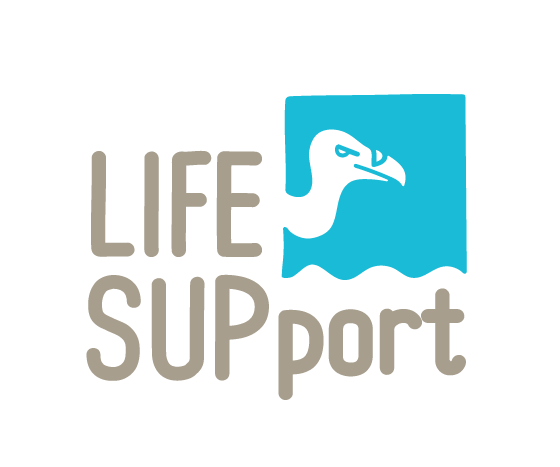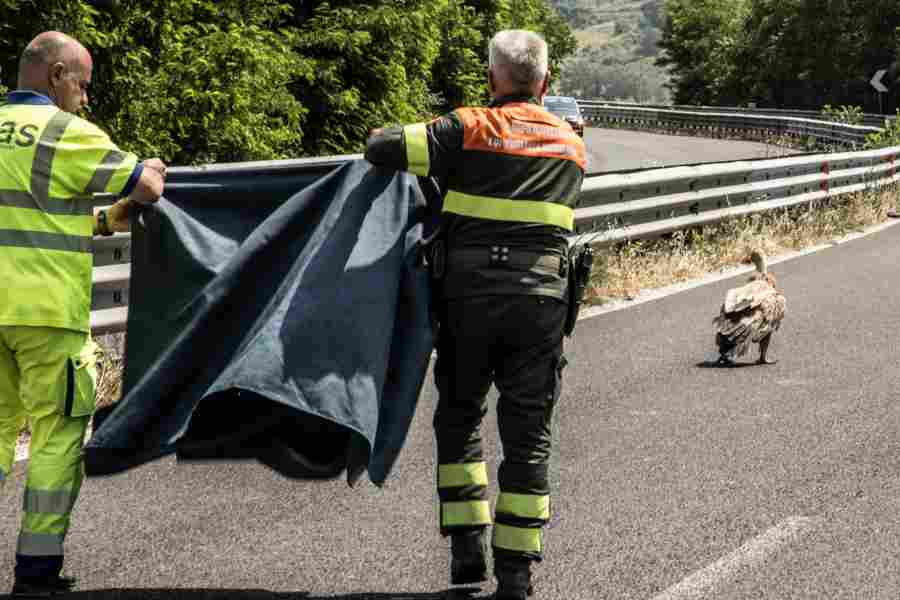
As apex scavengers, vultures require proper EU sanitary regulations to access safe, consistent food supplies through supplementary feeding programmes to promote their survival, ensuring they continue playing their important role in maintaining healthy ecosystems.
The intricate relationship between EU sanitary regulations and the sustainability of vulture populations was the central theme of the workshop, “Best Practices Regarding the Implementation of EU Sanitary Regulations in Nature Conservation,” held in Opatija, Croatia, from 18-19 April 2024, within the LIFE SUPport project. This event, organized by the Vulture Conservation Foundation (VCF) in collaboration with Association BIOM and Public Institution “Priroda”, brought together 23 experts from various European countries to strategize on protecting vulture populations through supplementary feeding and regulatory support.


Link between limited food availability for vultures and EU sanitary regulations
In recent years, the challenge of maintaining adequate food sources for vultures has been magnified by stringent sanitary measures across Europe, which often restrict the availability of carrion from domestic carcasses. The EU regulations 1069/2009 and 142/2011 have emerged as crucial mechanisms that allow for the controlled use of animal by-products and carcasses, providing a vital food supply for vultures affected by natural food shortages. This legislative framework is designed to bridge the gap between the need for sanitary control of animal remains and the ecological necessity of feeding vultures, which helps to prevent the accumulation of potentially hazardous biomass in the environment.
Workshop objectives and target audience
The workshop aimed to shed light on the ecological importance of vultures and explore the EU sanitary regulations in depth, addressing their implementation and impact on vulture conservation efforts across Europe. By gathering experts, including policymakers, national and regional authorities, conservation organizations and local agricultural communities, the event sought to foster a comprehensive understanding of how EU sanitary regulations can be optimized to support vulture populations while still maintaining public health and safety standards. Essentially, the workshop educated and engaged key stakeholders shared best practices and evaluated the feasibility of establishing new feeding stations.
Key insights
Regulatory framework and supplementary feeding
- EU Regulations and vulture feeding: The EU regulations 1069/2009 and 142/2011 were highlighted as essential frameworks that allow using animal by-products and carcasses for vulture feeding, helping maintain vulture populations by ensuring a steady food supply, crucial as natural food availability declines.
- Supplementary feeding practices: Examples from Spain and Portugal showcased successful supplementary feeding programmes. Spain’s approach, integrated through Royal Decree 1632/2011, serves as a practical model and blueprint for other nations that prioritizes natural food availability at designated feeding sites, enhancing ecological services and vulture conservation.

Challenges in implementation
- Legislative synchronization: There is a need for better synchronization between EU regulations and national laws to facilitate supplementary feeding across Europe. The complexities of legislative frameworks and their practical implementation were a focal point, emphasizing the need for amendments to enhance conservation efforts. For example, Croatia, despite well-aligned national legislation, faces challenges in implementing these practices outside designated feeding stations.
Research and monitoring
- Food availability: The workshop discussed the insufficient food availability for vultures in the Balkans, highlighting that existing feeding sites meet only a small fraction of the vultures’ dietary needs, according to studies. Detailed studies on food availability, particularly in the Balkan region, point to the urgent need for increased and strategically located supplementary feeding stations.
- Movement analysis: Detailed tracking of vulture movements is essential not only for understanding their ecological impact but also for monitoring potential threats such as poisoning and electrocution to refine conservation strategies. The LIFE SUPport project plans to tag 25 vultures, with an emphasis on tagging more adult birds, to enhance movement analysis and conservation strategies.

Important outcomes and recommendations
- Conservation tool and limiting factor: Sanitary regulations play a dual role as both a conservation tool and a potential limiting factor for the recovery of existing vulture populations. Their careful implementation is crucial for maintaining vulture populations.
- Ecological role of vultures: Vultures perform a critical sanitary role in the environment by scavenging dead biomass, which helps in disease control and nutrient cycling. Losing them could have severe ecological repercussions.
- Supplementary feeding as a conservation strategy: Supplementary feeding is vital for mitigating food shortages, reducing the risk of poisoning, expanding distribution, fixing reintroduced birds to new areas, and restoring eco-sanitary services.
- Spanish model of supplementary feeding: This proactive model is an excellent example of how legal and technical requirements, such as the abandonment of carcasses within Protected Animal Feeding Stations (PAFs) and periodical national coordination, can enhance the ecological services provided by vultures.
- Tagging and monitoring: Increasing the number of tagged vultures is essential for more detailed movement analyses, which can help in applying preventive measures against threats and improving conservation strategies.
On the last day, a field trip to Učka Nature Park highlighted the practical aspects of vulture conservation. Observations and interactions underscored the need for pragmatic approaches to conservation that incorporate both ecological and community needs.

The workshop concluded with a strong commitment to improving conditions for vulture conservation through better regulatory practices and collaborative efforts across Europe. By ensuring that sanitary regulations are tailored to meet the needs of conservation, stakeholders can significantly contribute to the sustainability of vulture populations, which play a vital role in maintaining the health and biodiversity of their habitats.
LIFE SUPport

The LIFE SUPport project aims to strengthen Croatia’s endangered Griffon Vulture (Gyps fulvus) population. A 5-year project co-financed by the EU’s LIFE Programme will create better conditions for the species to thrive and recolonize its historical breeding ground on the Croatian mainland. The project aims to improve breeding and survival conditions, minimise nest disturbance, reduce nestling mortality, tackle the threat of poison, mitigate collision and electrocution risks, and increase food availability. The LIFE SUPport project is a 2.1 million project from January 2023 until December 2027. It is a joint effort led by BIOM with Public Institution Priroda, Otok Krk Agricultural Cooperative, HEP – Operator distribucijskog sustava d.o.o., the energy distribution company, the Vulture Conservation Foundation and the Croatian Nature Protection Directorate (Ministry of Economy) as associate partners.




